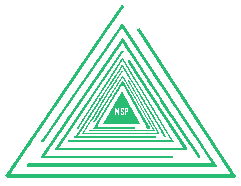Would you like to make this site your homepage? It's fast and easy...
Yes, Please make this my home page!
"Do I need NSP?"
9 Questions
NSP is not in the business of labeling people as addicts or compulsive. The only person who can tell if NSP is for you, is you. You are the one who must determine first, if you have a problem with addiction or compulsion, and second, if you want to deal with it, and third, if NSP can support you in dealing with it. It is perfectly fine to come to meetings while you are trying to figure that out. Just your first name or a nickname is the only label youll need.
How do we know whether our behavior is "compulsive" or "normal", or the use of a substance is "recreational" or "addictive"? The fact that heavy drug use or unprotected sex is "normal" in some groups does not make them healthy. Measuring ones lifestyle against what "everybody else" does is at best an unreliable way of assessing the healthiness of ones behavior.
On the other hand, a behavior which feels normal and enjoyable for you is not compulsive or addictive or "sick" just because someone else says so.
Here are some questions to ask yourself, if you are struggling with the question of whether you have an addiction or compulsion.
1)Is my behavior or substance use harming me and/or those around me? The harm can be to physical health, emotional well being, or relationships.
2)Do I spend most of my time thinking about or planning the behavior or substance use even when I am not engaged in it? If the rest of life seems unimportant or boring, it makes sense to ask why.
3)Does "____" get me into trouble with the law or otherwise? Do I risk grave consequences for "___"?
If so, why? Is it really worth it? What are the benefits that make it worth it?
4)Do I feel the need to hide my behavior or substance from nearly everyone? Sometimes, this may be an understandable way to cope with social tyranny (e.g. gay people hiding their relationships in the context of a homophobic culture.) Other times, it signifies a defensive stance to guard an activity one knows is unhealthy.
5) Am I terribly uncomfortable with people who dont "___"? How come? Does it seem reasonable and healthy for your social life to revolve around this particular behavior or substance? (In some instances it may.)
6) Have I stopped enjoying it, but still do it? Why do something you do not enjoy and that does not benefit you or anyone else?
7)Is it preventing me from doing things which would be more enjoyable or worthwhile?
8) Do I have mood swings, become depressed and lethargic, or agitated and irritable without it? These can be emotional or physical reactions to withdrawal. In the case of physical addictions, there can be a number of other symptoms, in some cases dangerous and needing medical attention.
9) Have I tried to stop and seemed unable to? (Or does the "deadline" for stopping it get pushed forward incessantly?)
Most people who go over this list of questions will identify some behavior which could be labeled addictive or compulsive. Not necessarily a big deal; questionable habits seem to be part of the human condition. The question is, how concerned should you be over it? When answered honestly, a few questions can help determine that..
~ How much has it cost me or others?
~ How much am I risking?
~ What will it cost me or others?
Balance the answers against the following:
~ What is it gaining me?
You are an adult. If you are honest, you can figure out whether you have a significant problem or not..
If you come to believe you have a problem with addiction or compulsive behaviors, one serious enough to do something about, it is perfectly acceptable to get help. If your health or life, or someone elses, is at risk, it is very important to get help. Some people are able to change their behavior with no outside support. Good for them. The rest of us need the help and support of others, at least for a while, and there is no shame in that. As a matter of fact, it can make life richer.
Nine Step Pagans may not be right for you, and it may not be enough in itself. Were just a bunch of people with some common problems. We are not a crisis team or a detox facility. We offer support, and do not pretend to be a substitute for treatment. If you need that support, want your beliefs respected, and are able to respect the beliefs of others, you may find part of what you need in NSP.
There are no membership fees or dues. The only requirement is to be a Pagan or Pagan-friendly adult seeking support in winning or maintaining freedom from compulsion or addiction, and willingness to abide by the principles of confidentiality, focus on self (rather than others), and mutual respect.

